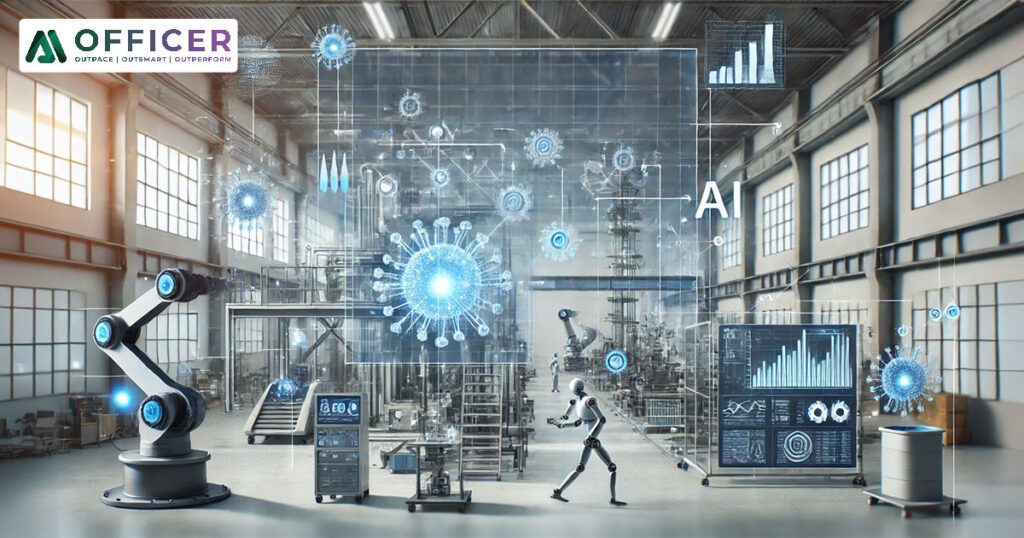
A crucial machine on your factory floor sputters and dies, halting production. You scramble to identify the culprit – was it a faulty sensor, a dip in power supply or something else entirely?
Traditionally, you might rely on historical data to find correlations, but what if there was a way to pinpoint the exact cause, allowing you to fix the problem faster and get production back on track?
Causal AI goes beyond the “what” to answer the all-important “why.” Unlike traditional machine learning that identifies correlations between variables, causal AI delves deeper to understand cause-and-effect relationships. This enables you to make informed decisions that drive tangible improvements across your operations.
From optimizing energy consumption and predicting equipment failures to enhancing product quality and unlocking new business models, this transformative technology holds the key to unlocking your full potential.
Understanding the causative mechanisms that create market trends and customer behavior allows producers to make strategic decisions, predict shifts and remain ahead of the curve.
This shift unlocks a treasure trove of benefits for manufacturers, allowing them to :
- Become proactive, not reactive
By pinpointing the root causes of quality issues, equipment failures and production bottlenecks, manufacturers can prevent problems before they arise. Imagine predicting a sensor malfunction and replacing it before it brings your entire line to a halt!
- Optimize processes for peak efficiency
Causal AI can analyze the impact of different variables on production output, allowing manufacturers to fine-tune processes, identify areas for improvement and ultimately achieve maximum efficiency.
- Make data-driven decisions with confidence
Causal AI doesn’t just provide insights; it empowers manufacturers to act on those insights with confidence. Knowing the true cause of an issue allows for targeted solutions, leading to faster resolution and improved decision-making across the board.
THE CAUSAL AI ADVANTAGE IN MANUFACTURING
- Optimizing production processes
Causal AI models can help manufacturers identify the critical factors that influence production efficiency, quality, and yield. By uncovering the causal relationships between variables like raw material inputs, machine settings and environmental conditions, you can fine-tune your processes to maximize output, minimize waste and ensure consistent product quality.
- Predictive maintenance and asset management
Causal AI can revolutionize your approach to asset management by enabling predictive maintenance. By analyzing the causal factors that contribute to equipment failures, you can anticipate breakdowns, schedule proactive maintenance and extend the lifespan of your assets. This not only reduces downtime and maintenance costs but also enhances overall equipment effectiveness.
- Supply chain optimization
Causal AI can provide unprecedented visibility into your supply chain, helping you navigate the complex web of suppliers, logistics and demand fluctuations. By understanding the causal drivers of supply chain disruptions, you can proactively mitigate risks, optimize inventory levels, and ensure the timely delivery of materials and finished goods.
- Sustainability and energy efficiency
Causal AI can be a powerful ally in your sustainability efforts, helping you identify the causal factors that influence energy consumption, waste generation and environmental impact. By understanding these causal relationships, you can implement targeted interventions, optimize resource utilization and drive measurable improvements in your environmental footprint.
- Personalized product customization
Causal AI can also revolutionize your approach to product customization by uncovering the causal factors that shape customer preferences and buying behavior. By understanding the underlying drivers of customer demand, you can tailor your product offerings, optimize pricing strategies and deliver personalized experiences that delight your customers.
While causal AI presents a powerful toolkit for manufacturers, there are challenges to consider. Implementing causal AI often requires specialized expertise and robust data sets. Additionally, the technology is still evolving and interpreting the results can be complex.
As you navigate the transformative potential of Causal AI, it’s crucial to approach its implementation with a strategic mindset.
Start by identifying the key pain points and optimization opportunities within your manufacturing operations and then work closely with your AI Officer to develop a tailored Casual AI solution that addresses your specific needs.
Remember, the success of Causal AI lies in its ability to uncover the hidden causal relationships that drive your business. By fostering a culture of data-driven decision-making and empowering your team to embrace this new paradigm, you can unlock unprecedented levels of efficiency, innovation and sustainable growth.
Stay tuned to our blogs for more insights on the transformative impact of AI in the manufacturing industry.
And remember, at AI Officer, we’re dedicated to empowering businesses like yours with cutting-edge AI solutions that drive tangible results.





